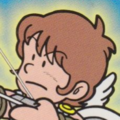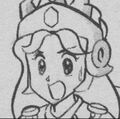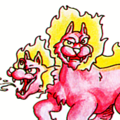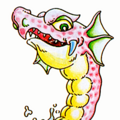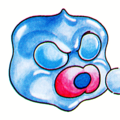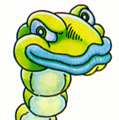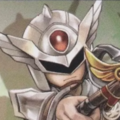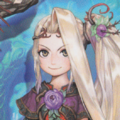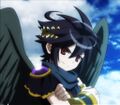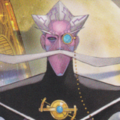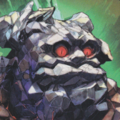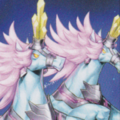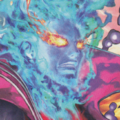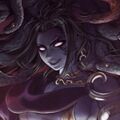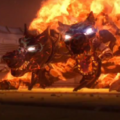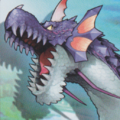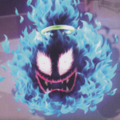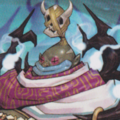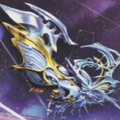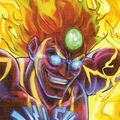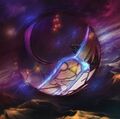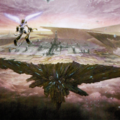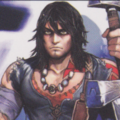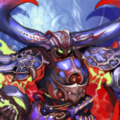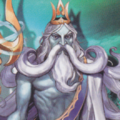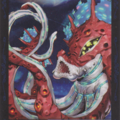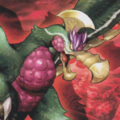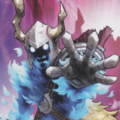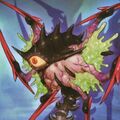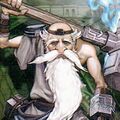
The official discord link if you wish to join the discord: https://discord.gg/j5RKwCvAFu
Support the wiki on our official Ko-Fi page or Patreon page!
Kid Icarus
From The Codex
Background
Kid Icarus is a series of video games first released on the Famicom Disk System in December 1986 in Japan, and on the Nintendo Entertainment System in February 1987 in North America and Europe. The game features the flightless angel Pit, the main protagonist of the series, on his quest to defeat Medusa and restore peace to Angel Land after Palutena, the Goddess of Light, banished Medusa to the Underworld for her evil deeds against humanity. The first two Kid Icarus games were heavily inspired by Metroid to the point of using the same engine for the original game. The game is a Side-Scrolling Action Platformer with some RPG elements thrown into the gameplay as well. The most recent installment in the franchise, Kid Icarus: Uprising, shifts the genre into a Star Fox-like Third Person Shooter game that features two primary mechanics; air and land battles. The combat is further fleshed out with the addition of weapon classes, customizable power-ups, passive weapon abilities, and various other items to keep the gameplay fresh.
The Kid Icarus series is heavily based on Greek Mythology and regularly pokes fun at the mythology's stories, with nearly every single character in the series being based on Greek myths or quietly alluding to a specific character. The very first game features Palutena and Medusa; two goddesses of light and dark respectively who watch over humanity and interact with it in different ways. In Kid Icarus: Uprising, the introduction of more gods, such as classical gods like Hades and Poseidon to original gods like Viridi, based on the the Greek Goddess of Nature, Gaea.
The series commonly follows Palutena and Pit's struggle to defend the human race against the Underworld Army and its attempts to conquer the world. However, in Kid Icarus: Uprising, the introduction of Viridi and her efforts to destroy the human race were introduced. After the events of Kid Icarus: Uprising, it is revealed in Palutena's Guidance that Viridi still wishes to destroy the human race and is completely against Palutena once more.
Terms
- The Divine Pantheon: The Divine Pantheon is the collective acknowledgment of all the gods and goddesses who exist in the Kid Icarus universe. Although most gods are seen as lesser in terms of power, the few real forces within the pantheon typically have the lower gods as generals and followers within their own forces. The three primary factions within the Kid Icarus are Palutena's Army, Viridi's Forces of Nature, and Hades' Underworld Army.
- Soul: Soul, often confused with one's mind and willpower, is a non-physical material all living creatures possess. In the story of Kid Icarus, Hades tricks the human race into fighting a catastrophic war, resulting in large quantities of souls from the aftermath of the battles to be collected, harvested, and molded into Underworld Troops. As described by Hades, the soul is just another material one can harvest from living creatures and lacks any form of personality or will. This is why all souls can easily reincarnate into new beings without memories from their past lives. This is also why many characters can survive without the need of a soul, as it has no bearing on their life once they create a consciousness and body.
- Sea of the Galaxy: Also called The Galactic Sea, the Sea of the Galaxy is an interstellar ocean hosting all of the constellations of the heavens above Sky World. Making its debut in Chapter Eight - The Space Pirate Ship that Sails through the Heavens, The Sea of the Galaxy is where Lady Palutena hid the Three Sacred Treasures in case of emergency and where Pit fights the Space Kraken. Although referenced as a specific location within the cosmos on one occasion, the Sea of the Galaxy's reach is consistently stated to reach across the entire heavens and host all of the stars within the sky.
- Realms: Realms are a term that refers to a specific character's home or base. First used in Chapter 19 - The Lightning Chariot in reference to the Lightning Chariot Base, which is located at the sky's end. Based on what "realms" means in this context, this term cannot refer to anything more than a location situated somewhere in the universe (Or another universe).
- Note: Although the American version of Kid Icarus establishes the Underworld as a realm in Chapter 3 - heads of Hewdraw, this line is absent from the original Japanese script. Furthermore, the Underworld is shown to have stars in the sky, implying it has its own variant of the Sea of the Galaxy.
- The Void of Chaos: The Void of Chaos, also known as the Chaos Vortex, is the home of the Chaos Kin; A creature with mysterious powers said to rival that of the gods. The Chaos Vortex is described as "A bizarre dimension". Unlike the previously established realms, this world is an entirely separate universe governed by wildly different and irregular laws. Because of this, dimension in context refers to separate universes within the Kid Icarus cosmology.
Calculations
- The Wolf Claws create an explosion: Town level (7-C)
- Viridi drops a Reset Bomb over a human city: Island level (6-C)
- Virdi drop a Reset Bomb on the Aurum Brain: Mountain level (7-A)
- Pit Flies to the Sea of the Galaxy: 8,565,783,435,717.481c (MFTL)
- Pit gets shot out of a cannon: 122,287,829,312,545,620c (MFTL)
Power of the Verse
The verse is moderately powerful with most characters scaling to each other. Most of the primary characters scale to Country level and MFTL, with the Aurum Brain being above almost all of the gods and having overtime Planet level power. However, the strongest god, Lord Dyntos, recreated the entire Sea of the Galaxy in a trial for fun, making him Universal level, unfortunately no characters as of Kid Icarus: Uprising scale to him. Where the verse shines the most is its large pool of abilities. Almost all divine characters have some form of Immortality and Regeneration beyond physical and some levels of non-physical destruction. Furthermore, the characters have a lot of offensive abilities ranging from Transmutation, Death Manipulation, BFR, Pain Manipulation, Power Nullification, Reality Warping, and Life Manipulation.
Canon
The Kid Icarus canon is fairly straightforward for the most part and doesn't follow a complex timeline. However, the iconic Super Smash Bros. game adds additional lore to the Kid Icarus universe in the form of Palutena's Guidance. As both Kid Icarus Uprising and Super Smash Bros. Were developed and supervised by Masahiro Sakurai, it is safe to assume that the interactions and lore-related information is canon to the Kid Icarus series. To further support this, Kid Icarus Uprising is infamous for its constant acknowledgment of the fourth wall and other iconic Nintendo IPs such as Metroid.
Take note that any dialogue completely changed from the original Japanese script should be disregarded. This is not due to issues translating over dialogue from Japan for Kid Icarus: Uprising, but rather due to translation issues back in the original Kid Icarus game. Although not many of these translation errors exist in Kid Icarus: Uprising, the ones that do should be disclosed from any index-related topics about Kid Icarus.
Knowledgeable Members
Characters
Kid Icarus
Palutena's Army
-
Pit
-
Palutena
Medusa's Underworld Army
-
Medusa
-
Twinbellows
-
Hewdraw
-
Pandora
-
Thanatos
Other
-
Zeus
Kid Icarus: Of Myths and Monsters
Palutena's Army
The Orcos
Kid Icarus: Uprising
Palutena's Army
-
Pit
-
Palutena
-
Fighter
Viridi's Forces of Nature
-
Virdi
-
Dark Pit
-
Phosphora
-
Arlon
-
Cragalanche
-
Lightning Chariot
Hades' Underworld Army
-
Hades
-
Medusa
-
Twinbellows
-
Hewdraw
-
Pandora
-
Thanatos
Space Pirates
-
Space Pirates
Aurum
-
Aurum Brain
-
Pyrrhon
-
Aurum Hive
-
Aurum Battleship
Other
-
Magnus
-
Dark Lord Gaol
-
Poseidon
-
Galactic Fiend Kraken
-
Phoenix
-
Chariot Master
-
Chaos Kin
-
Dyntos
Discussions (Link For Mobile Users):
| Discussion threads involving Kid Icarus |


